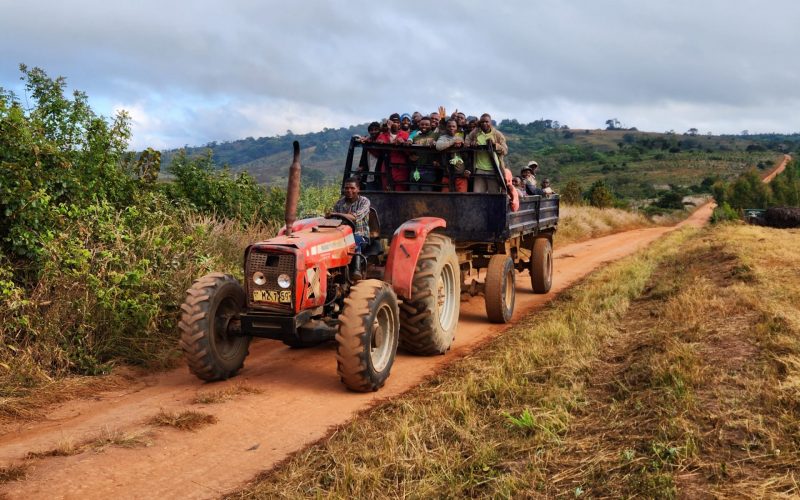Just a week prior to appointing the new minister and his deputy, South Africa’s President Jacob Zuma signed the Marine Living Resources Amendment Bill into law. The significance of the amendment Act is that it allows for the implementation of the Policy for the Small Scale Fisheries Sector in South Africa (SSF policy), which had been adopted by Cabinet in 2012. Specifically, the Minister is now empowered to activate a range of policy interventions highlighted by fishing communities during the multi-year consultation process that lead to the adoption of the SSF policy. These include the proclamation of fishing zones for exclusive use by the small scale fisheries sector and the allocation of collective fishing rights to small scale fisheries co-operatives.
A further critical development in the weeks leading to Minister Zokwana’s appointment was the announcement by the outgoing Minister that the entire 2013 fisheries rights allocation process (FRAP2013) would be scrapped. South Africa has 22 fisheries (targeted by both large- and small scale fisheries sectors), and when rights were allocated for these in 2005, the allocations ranged from 2 to 15 years. Six of these fisheries expired at the close of 2013, but, as an audit commissioned by the Department has shown, the process through which these rights were to be re-allocated was marked by serious administrative shortcomings. The allocation of fisheries rights is a complex, multi-year process. In 2011 the Department had outlined a detailed planning framework that would see the 2013 rights allocated five months ahead of the end-of-year deadline, thereby allowing time for appeals, court reviews and a final decision on the rights allocations.
The audit report reveals, however, that the timeframes for the allocation process were soon rendered meaningless. Service providers were supposed to have been appointed to assist with the implementation of the process in April 2012, but were not appointed until June 2013. The audit highlights various other planning failures and delays.
It is unclear at this stage exactly how the Department plans to manage the re-allocation of the FRAP2013 rights, or whether they are in a position to effectively manage the rights allocation for abalone (existing rights expire on 31 July 2014) and the nine fisheries that require rights re-allocation in 2015. These fisheries include west coast rock lobster (due by 31 July 2015), which is the primary cash-generating fishery for small scale fisheries in the Western Cape and Northern Cape and also a critical resource for the country’s industrial fisheries.
Undoubtedly the challenges facing DAFF are significant. As the new Minister takes stock of the current situation, however, he may note that the required policy and legislative reforms are now in place to address the history of marginalisation and underdevelopment that has marked South Africa’s small scale fisheries. The need to start again with FRAP2013 and the upcoming rights re-allocation windows in 2014 and 2015 may provide an opportunity to respond effectively to the requirements of the SSF policy. For example, there may be an opportunity to more effectively implement the allocation of rights to a ‘basket of species’, thereby allowing small scale fishers to target a diverse range of seasonal stocks in line with traditional practices. Delays in the rights allocation, unfortunate as they are, may provide more time for small scale fisheries to form and consolidate co-operatives. Certainly the FRAP2013 process has shown that postponing a rights allocation deadline is preferable to a rushed and ultimately illegitimate allocation process.
In Professor Edith Vries the Minister has a development-oriented and competent Director General, and the recent appointment of Mr Mortimer Mannya as the Deputy Director General responsible for fisheries is a further opportunity to reinvigorate the fisheries administration. Minister Zokwana should also take encouragement from the fact that many small scale fishing communities have already formed co-operatives in line with the SSF policy, some of which are well developed, with audited accounts and a track record of collaboration and mutual support. The Department of Trade and Industry’s Fisheries Cluster, as well as NGOs such as Masifundise and WWF, also have existing programmes to support small scale fisheries co-operatives.
The system of interim relief permits that had been established in 2007 as a stop-gap measure during the development of the SSF policy is now in its ninth iteration. While the interim relief system has been marked by controversy and alleged corruption, it has undoubtedly played an important role in broadening access to fishing resources for small scale fishers.
In certain communities fishers have even pooled interim relief quotas, accepting lower catches individually so that excluded fishers are able to continue fishing. It is precisely such co-operation and community cohesion which is envisioned by the SSF policy. It is to be hoped that the effective implementation of the SSF policy under Minister Zokwana’s tenure would see a more permanent solution to the challenge of access and equity in the small scale fisheries sector.
Finally, it should be recognized that Parliament and civil society also have an important role to play in providing oversight and promoting transparency and accountability in the Department’s functioning. In this regard, the shortfalls of the Department of Agriculture, Forestry and Fisheries over the past years, including the planning failures in the FRAP2013 process highlighted in the Department’s audit report, reflect the need for oversight institutions, particularly the Portfolio Committee on Agriculture, Forestry and Fisheries, to consider ways in which it could more effectively exercise its oversight role in coming years. This will be particularly important in relation to fisheries rights allocations processes and the implementation of the SSF policy.








